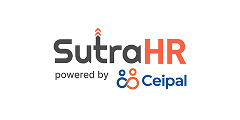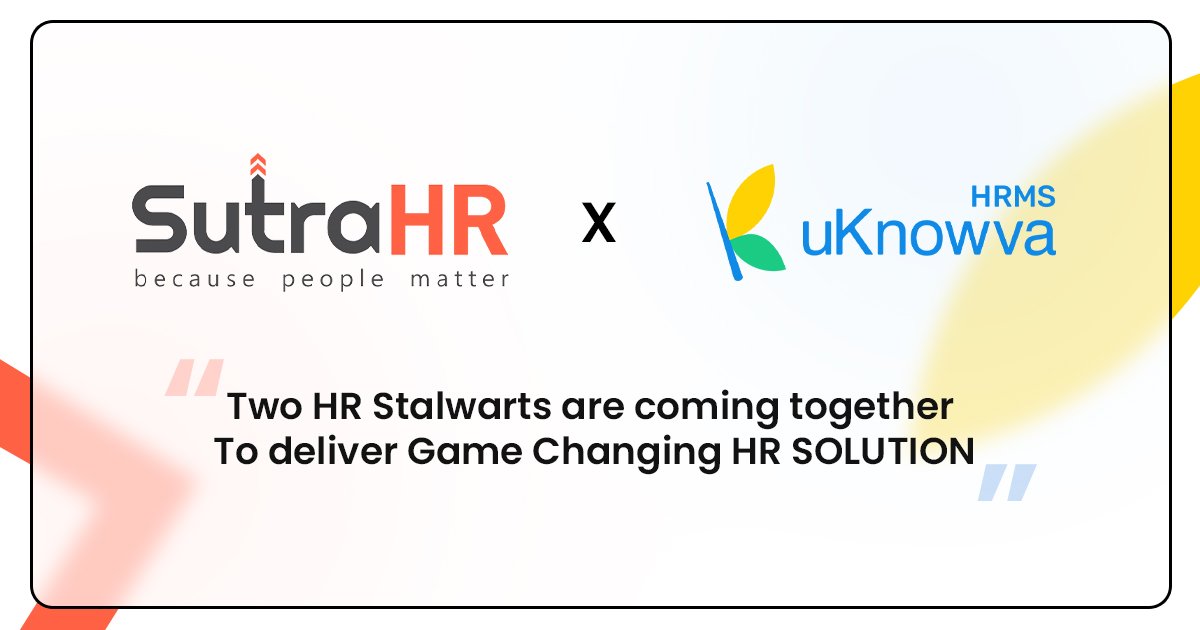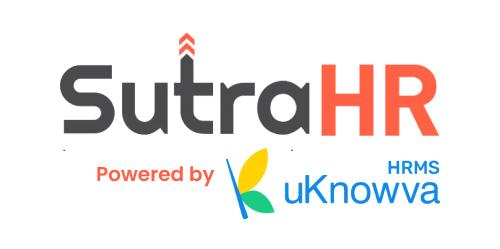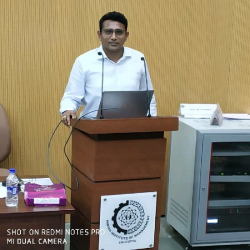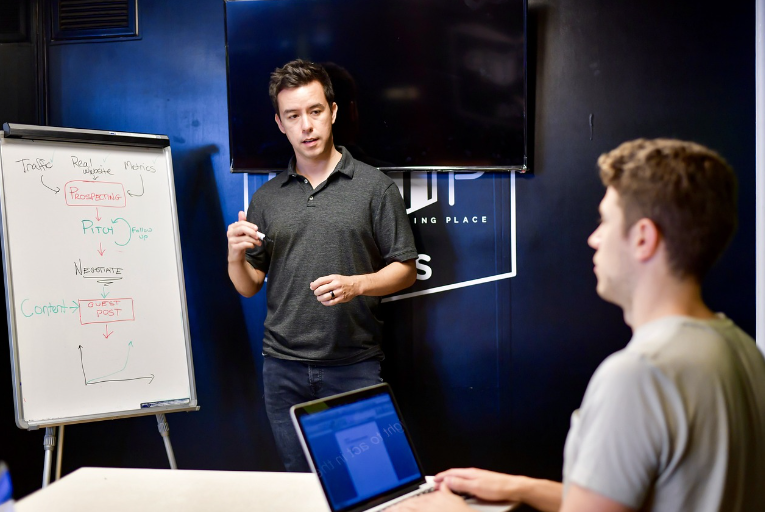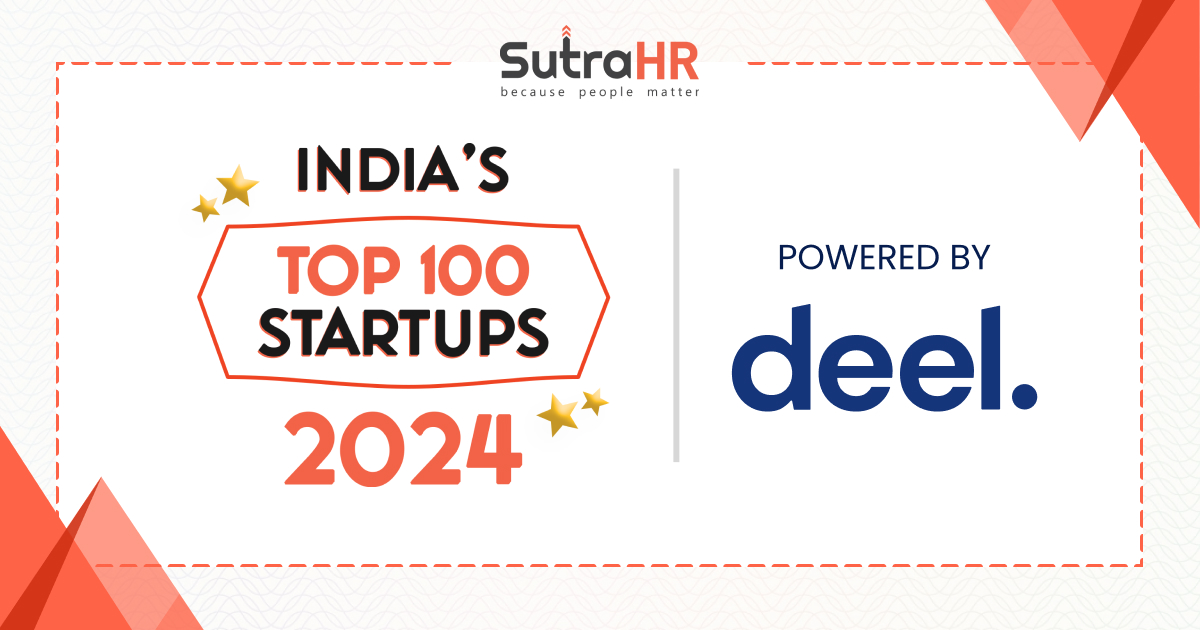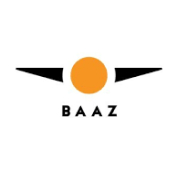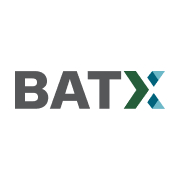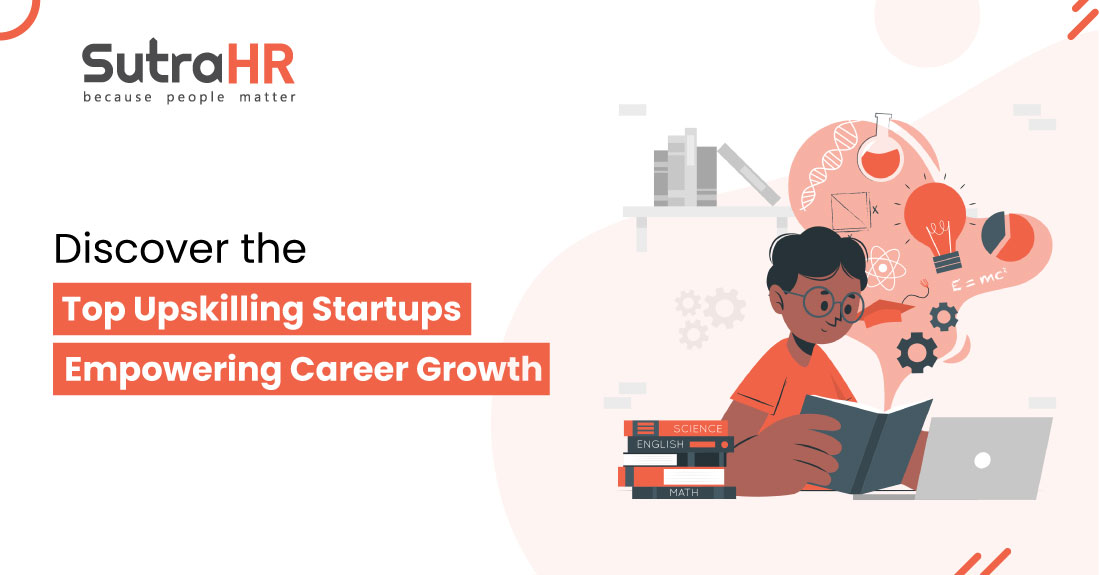In a groundbreaking move, SutraHR, a leader in recruitment solutions for startups, has joined forces with uKnowva, an innovative HRMS software provider. This strategic partnership is set to redefine how HR operations are conducted, benefiting not only SutraHR’s users but also the broader HR community.
About the Partnership
The collaboration between SutraHR and uKnowva is built on a shared vision of enhancing efficiency, productivity, and engagement in HR processes. By integrating uKnowva’s cutting-edge HRMS technology with SutraHR’s extensive recruitment expertise, this partnership aims to provide comprehensive, end-to-end HR solutions that cater to the dynamic needs of modern businesses.
Benefits for SutraHR Community
- Exclusive Deals: SutraHR users will benefit from special offers and discounts on uKnowva’s HRMS solutions. This makes it more affordable for startups and SMEs to access top-tier HR technology.
- Comprehensive HR Solutions: With uKnowva, users can access a wide range of HRMS tools, including payroll management, employee self-service portals, performance tracking, and more. These tools are designed to streamline HR operations and improve overall efficiency.
- Enhanced Recruitment Process: uKnowva’s software will complement SutraHR’s recruitment expertise, providing tools that automate job postings, candidate tracking, and onboarding. This integration will help businesses hire faster and more effectively.
- Improved HR Operations: With uKnowva, users can manage all aspects of HR in one integrated system, simplifying processes and reducing administrative burdens.
- Educational Resources and Best Practices: As part of their collaboration, SutraHR and uKnowva will offer educational resources, webinars, and best practices to the HR community. These initiatives will help HR professionals stay informed about the latest trends and technologies, empowering them to implement effective HR strategies.
- Seamless Connection: SutraHR will ensure a smooth and hassle-free process for users to connect with uKnowva.
Conclusion
The partnership between SutraHR and uKnowva marks a significant milestone in the HR industry. By combining their strengths, they are poised to deliver unparalleled value to their users and the broader HR community. This collaboration not only enhances recruitment and HR operations but also sets a new standard for innovation and efficiency in the industry.
For more information about this exciting partnership, visit SutraHR or contact us at +91 92222 13188 / buzz@sutrahr.com. Together, we are committed to transforming HR solutions and driving success for businesses worldwide.
